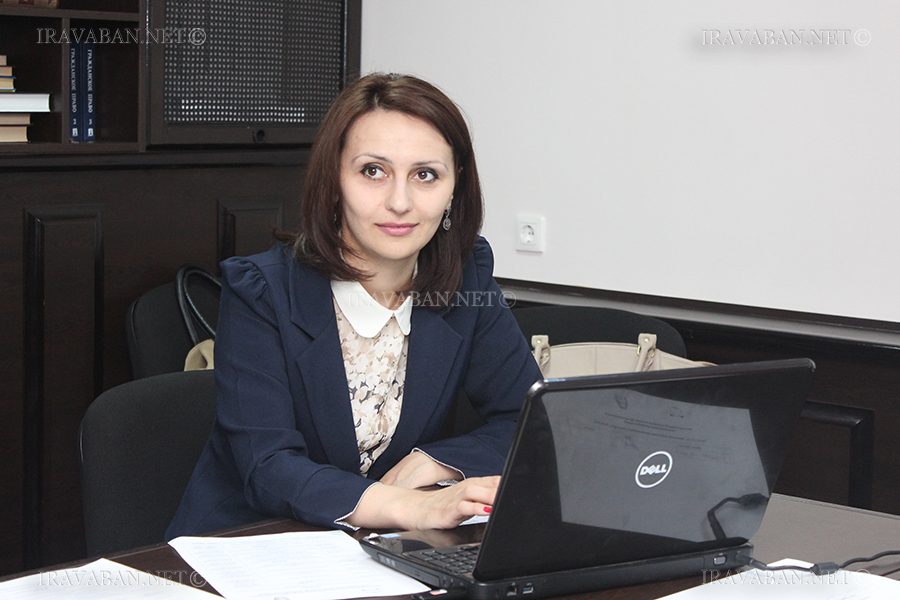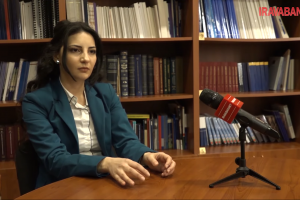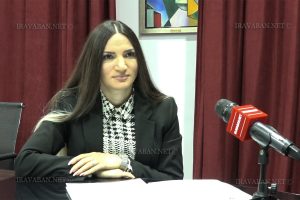“I am aware of Gagik Jhangiryan’s opinion on the vetting of advocates from media publications, and in my opinion, that idea was expressed in the context of judicial reform.” Advocate Arpine Yeghikyan said in the conversation with Iravaban.net, referring to the topic, that the Acting Chairman of the Supreme Judicial Council Gagik Jhangiryan had recently expressed an opinion in his speech about the vetting of advocates.
“I can say that the process of cleaning and purification should also refer to the advocates’ service, because, unfortunately, it is accepted in our country, for the most part, I do not want to offend anyone, but there are advocates who communicate with law enforcement agencies and courts in various cases very easily get recognition. In other words, this vetting must include the entire judicial system and all the bodies that serve and support it,” the Acting Chairman of the SJC had said.
The advocate noted that the judicial system is a system of activities of different actors interacting with each other: law enforcement, judicial and law enforcement bodies and lawyers. And, of course, in order to register a reform of the judicial system, there must be reforms in the field of activity of each individual participant who participates in, or supports the activities of that system.
“It is accepted that vetting is a process of checking compliance with the criteria set for the appointment or promotion of a state position or filtering state officials. Advocacy is a professional association of advocates, which is a civil society institution, not part of the state system and/or local self-government bodies. Therefore, it is difficult to speak about vetting of advocates in the classical sense,” she said.
According to the advocate, however, as a participant with an important role in the judiciary, advocates should also act exclusively within the framework of the law, meet certain criteria, those who do not meet these criteria should leave the ranks of advocates: the advocates’ activities, behavior should also be subject to evaluation.
“Taking into account that the main beneficiary of the advocate’s activity is the person, the latter is also the first and, perhaps, the most important evaluator of the advocate’s activity. However, there may be cases when the perceptions of the “best advocacy activity” coinciding between an advocate and a client, do not correspond to the accepted standards of conduct that do not violate the law,” Arpine Yeghikyan said.
The advocate noted that in that case the Chamber of Advocates and, if necessary, the law enforcement bodies have to carry out activities within the framework of the rather wide toolkit reserved for them by law.
“As for the question of whether vetting of advocates is legally permissible, if we consider ‘vetting of advocates’ as a tool to check the compliance of advocates and their activities with the established standards, then it is already introduced in the legislation,” she said. Adding that if any tools need to be improved, the issue should be discussed with all stakeholders and taking into account opinions.
Arpine Yeghikyan, considering “vetting of advocates” as a tool to check the compliance of lawyers and their activities with the established standards, said that the existence and use of such tool is firstly, of preventive importance, and further can exclude the professional activities of people who do not meet the standards.
“And in order to be able to clearly answer what “vetting of advocates” will lead to, one must first know exactly what content is given to the phrase ‘vetting of advocates’,” the advocate said.
She noted that the advocates’ community must first find out the necessity of the discussion on “vetting of advocates”, what is the content of the phrase “vetting of advocates”, present its position on such a need or lack thereof. “In each case, the choice of steps depends on the situation.”
Referring to the fact that Gagik Jhangiryan justifed his opinion, saying that ‘today many lawyers are gaining recognition, as they are very easy to communicate with law enforcement agencies and courts in various cases’, the advocate said.
“In general, in terms of providing quality legal assistance to the client, the provision of feedback to the competent authority for the purposes permitted by law is a positive and even useful quality.
However, if such communication is carried out for the purpose of obtaining shadow agreements and contains elements of an illegal act, then the bodies authorized to detect, exclude and evaluate such cases should act, regardless of the prevalence of the phenomenon.”
Speaking about the claims of some experts that if vetting is the basis for the reform of the advocacy institute, then that reform can be carried out by dividing one chamber into unions, Yeghikyan said that the number of unions cannot guarantee the solution of problems, because without proper control and effective mechanisms the same problems can exist in several unions.
“Therefore, in order to solve the problems, if there are any, it is necessary to reveal the objective reasons, to introduce mechanisms to exclude them, to instill in the society and all advocates the understanding that the advocate is called to serve only the interests of justice, as well as the rights and privileges entrusted to him/her for protection,” advocate Arpine Yeghikyan said.
Lusine Hakobyan


















